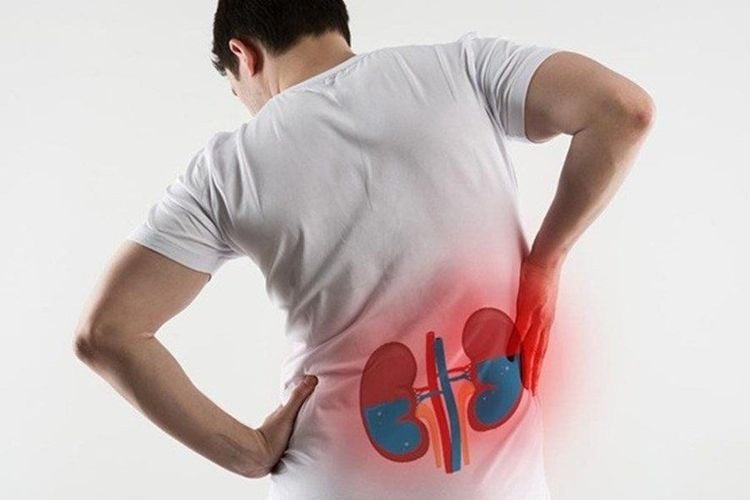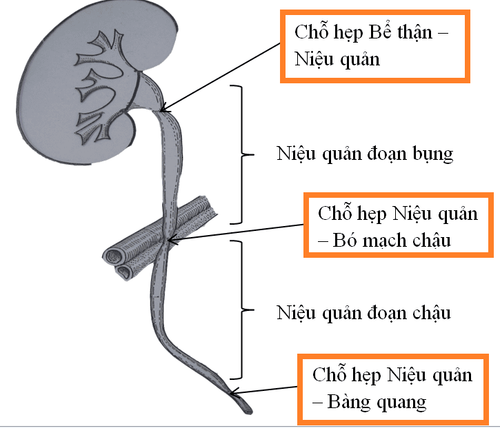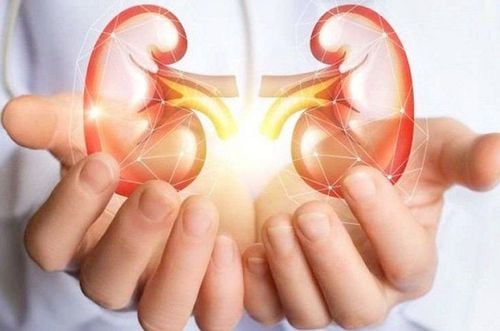This is an automatically translated article.
The article is professionally consulted by Associate Professor, Doctor, Doctor Hoang Dang Mich - Head of Department of Medical Examination & Internal Medicine - Vinmec Ha Long International General Hospital.
Hydronephrosis can cause impaired kidney function and damage the structure of kidney cells. These lesions are reversible in a few days, acute hydronephrosis.
1. What is hydronephrosis?
Hydronephrosis is a condition in which the kidneys are damaged when they are enlarged or enlarged due to the urine being blocked and stagnant in the kidneys. Hydronephrosis can occur in only one or both kidneys.
If hydronephrosis persists for several weeks or months, chronic hydronephrosis will cause more severe symptoms. When both kidneys are affected, it leads to kidney failure.
2. Signs of hydronephrosis
2.1 Signs of acute hydronephrosis Low back pain or abdominal pain. Pain that begins in the lower back or flank and radiates to the groin. Pain accompanied by vomiting, nausea, and sweating. The pain is intermittent, the pain is so much that the patient writhes or bends over because of the pain. There may be blood in the urine, painful urination, painful urination. 2.2 Signs of Chronic Hydronephrosis The kidneys enlarge gradually over a long period of time and may not have any symptoms. When there are tumors in the pelvis or bladder causing compression, the tumor can grow silently and cause symptoms of kidney failure such as: fatigue, nausea and vomiting, disturbances in sodium and potassium electrolytes , calcium, arrhythmia, muscle spasms. Urine tests can detect blood, bacteria that cause infections, or cancer cells. CT scan showed hydronephrosis and stones. Ultrasound showed hydronephrosis. The renal calyces are dilated, the kidney is enlarged.

3. What is the cause of hydronephrosis?
There are many causes of hydronephrosis stemming from diseases such as:
Kidney stones: Kidney stones block the ureters. If the stone is large, when the stone moves from the kidney to the bladder, it will block the ureter, causing urine to stagnate in the blocked place. Meanwhile, the kidneys continue to perform the function of filtering urine, but the ureters are blocked, urine cannot enter the bladder, this is the cause of the kidneys to retain water and enlarge. Ureteral stenosis: Narrowed ureters can be caused by previous kidney stone surgery, leaving scars and causing obstruction, causing the kidneys to retain water. Bladder cancer, bladder stones, abnormal contraction of the bladder neck: also obstruct the passage of urine from the bladder to the urethra, leading to stagnant urine from the bladder, causing the kidneys to retain water. Narrowing of the urethra: Narrowing of the urethra due to infection or stone is also the cause of hydronephrosis. Tumors outside the urinary tract compress the ureters and obstruct the flow of urine, causing fluid retention in the kidneys. Women with cervical cancer, prostate cancer, pregnant women, uterine prolapse... Bladder dysfunction due to brain tumors, spinal cord injury or tumors, multiple sclerosis , diabetes, ... cause vesicoureteral reflux, which is also the cause of hydronephrosis.
4. How to prevent hydronephrosis?
When finding the cause of the disease, the disease can be prevented by:
For people with kidney stones, they should drink a lot of water every day to be able to remove the stones. Drinking water can be boiled and cooled down, water of leaves has the effect of dissolving stones such as corn silk, plantain, needles ... For urinary tract infections such as: faithfulness to one wife. husband; do not have promiscuous sex; regularly clean the genitals before and after sex; Do not bathe or soak in contaminated areas such as ponds or lakes. Women should maintain proper hygiene of the private area, should only clean the private area from front to back, not from back to front ... to prevent urinary tract infections upstream, narrowing the urinary tract and cause hydronephrosis. When seeing the above-mentioned signs of hydronephrosis, the patient should seek medical attention to be examined, consulted and treated promptly by specialists.
Please dial HOTLINE for more information or register for an appointment HERE. Download MyVinmec app to make appointments faster and to manage your bookings easily.













